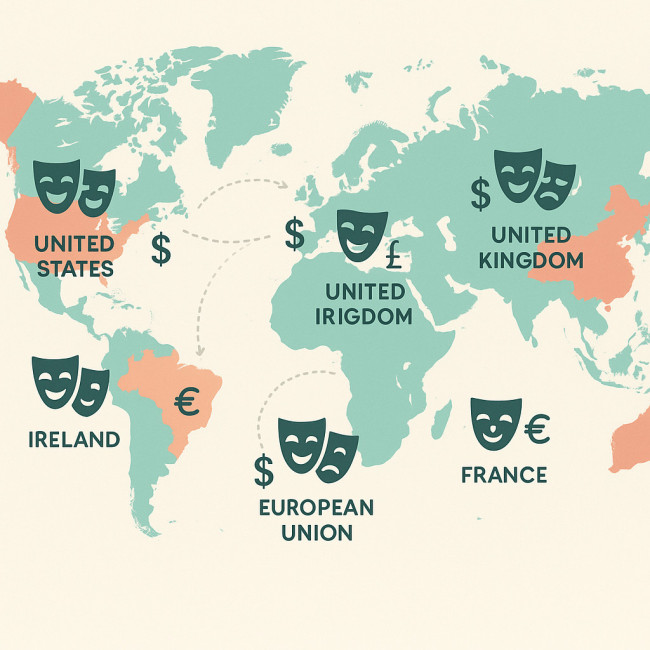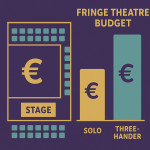State-funded cultural events: grants and deadlines actors should monitor in 2025
Dreaming of performing on a publicly funded stage next year? From New York to Sydney, government agencies are injecting millions into theatre, film and multidisciplinary shows. This guide lists the most actor-friendly grants, their 2025 deadlines, and practical moves to secure your slice of the pie.
Why state-funded cultural grants matter for actors
State support goes far beyond covering a director's production budget. Winning teams often earmark funds for actor salaries, rehearsal space, travel, insurance and even dialect coaching. Securing one successful grant can:
- Guarantee minimum union rates for the cast.
- Unlock prestigious venues that raise your professional profile.
- Attract media coverage that feeds future auditions and event-focused talent scouts.
Top 2025 funding calls actors should track

Before diving into the exact figures, it helps to visualise where public money is concentrated around the globe. Picture the map of 2025 cultural budgets: Washington and Ottawa pumping dollars into regional theatre tours, London funnelling National Lottery cash toward socially engaged drama, Brussels rewarding cross-border casts, while Canberra and Dublin push for new writing. Knowing these geographic hotspots allows you to time outreach emails, secure local collaborators and, crucially, quote comparative success stories in your cover letter—an underrated yet persuasive tactic that separates polished applications from generic wish-lists. Keep the mental atlas handy as you read the numbers below.
| Funding body & country | Main focus | Max grant (local currency) | Key 2025 deadline |
|---|---|---|---|
| National Endowment for the Arts – US | Grants for Arts Projects (theatre) | $100 000 | 13 Feb 2025 |
| Arts Council England – UK | National Lottery Project Grants | £100 000 | Rolling – submit by the 1st of any month |
| Canada Council – CA | Explore and Create: Concept to Realisation | C$30 000 | 15 Jan 2025 |
| Creative Europe – EU | European Cooperation Projects | €200 000 (small scale) | 20 Mar 2025 |
| Australia Council – AU | Arts Projects for Individuals & Groups | A$50 000 | 4 Feb 2025 |
| Irish Arts Council – IE | Theatre Project Award | €150 000 | 8 May 2025 |
| French Ministry of Culture – FR | DRAC Dramatic Creation Aid | €80 000 | 1 Oct 2025 |
Snapshot of deadline clusters
The first quarter is dense: five major programmes close before March ends. Mark your calendar now so applications don't collide with rehearsals or self-tape requests.
Three moves to boost your grant-winning odds

Actors often picture the grant process as a lonely, late-night typing marathon, but the reality is more collaborative. Budget lines are negotiated with stage managers, outreach metrics reviewed with marketing leads, and accessibility commitments vetted by dramaturgs in real time. Setting up a shared workspace early lets everyone catch red flags—like overtime clauses that violate union rules—long before the submit button is hit. It also generates a treasure trove of behind-the-scenes photos and testimonials you can attach as evidence of “community engagement”, a keyword that surfaces in nearly every contemporary call for proposals. In short, winning starts at the table, not on the deadline day.
1. Align your pitch with policy keywords
Each agency uses its own lexicon—“community engagement”, “inclusivity”, “digital outreach”. Mirror these phrases in your artistic statement and measurable outcomes.
2. Build partnerships early
Attach letters of intent from venues or co-producers. An early venue agreement also positions you for a slot in the 2025 film festival calendar, boosting perceived reach.
3. Prove audience development
Show past metrics: ticket sales, streaming watchers, social reach. If you need fresh numbers, organise a reading supported by our showcase planning tips and collect attendee data.
Timetable: when actors should start each task
- 8–9 months out – Form creative team, secure producer, outline script.
- 6 months out – Draft budget, request union agreements.
- 4 months out – Collect support letters, confirm venue, film teaser.
- 2 months out – Proofread application, align attachments, submit.
- Post-submission – Prepare for interviews; attend industry networking mixers to meet jury members informally.
Common pitfalls that sink otherwise strong proposals
- Ignoring accessibility: budgets lacking surtitles, captioning or wheelchair ramps.
- Overestimating touring income: funders spot inflated revenue in seconds.
- Missing copyright clearances for text or music excerpts.
- Submitting generic CVs—replace “various commercials” with concrete, verifiable credits.
FAQ
- Can non-union actors apply?
- Yes, most grants fund projects, not individual contracts. Producers can later hire you under union or non-union terms once funding is secured.
- What if my project spans two countries?
- Look at Creative Europe or bilateral cultural agreements. Dual-nation projects often score higher on “cross-border collaboration”.
- How long after submission will I get an answer?
- Expect 12–24 weeks. Use that period to refine marketing assets and lock rehearsal dates tentatively.
- Do I need fiscal sponsorship?
- In the US, yes if you're applying as an individual. Internationally, many councils allow direct applications from artists.
Key takeaways
Actors who diarise deadlines now, tailor proposals to policy goals and demonstrate audience traction stand out. Start building partnerships this month—your future funded curtain call depends on it.
Ready to turn dates into deals? Download each guideline today and block rehearsal-safe writing days. Let 2025 be the year your name appears on a state-funded playbill.











